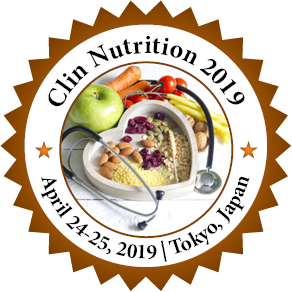Cherry Ann Garcia
University of the Philippines, Philippines
Title: Maternal perspectives on probiotics, intake of probiotic food and occurrence of atopic dermatitis among children in selected urban communities in laguna, philippines
Biography
Biography: Cherry Ann Garcia
Abstract
Introduction: Atopic dermatitis (AD), also known as eczema, is the most common chronic relapsing skin disease in children, affecting approximately 10% to 30% of children worldwide. For this reason, the research community investigated possible
innovative prevention and treatment strategies for AD. One of these strategies was the manipulation of the intestinal fl ora
through probiotics.
Method: Th is study is a cross-sectional, analytic study on 680 mothers and 680 children recruited in selected urban communities in Laguna, Philippines.
Results: Most mothers (92%, n=625) had highly positive attitude to probiotics. Composite scores were computed and
statistical data revealed that attitude is signifi cantly correlated with behavioral control (r=0.2087, p-value <0.001) and intention (r=0.2934, p-value <0.001). Furthermore, it was found out that both intention (r=0.3703, p-value <0.001) and perceived control (r=0.2355, p-value <0.001) were signifi cantly correlated to total amount of intake of probiotic food. Female children (42.43%) have higher intake than males (30.61%). High intake was also noted among children of mothers with educational attainment of Vocational (45.45%) and College and higher (41.09%); among low- (38.92%) and middle-income families (44.06%); and among those without family history of AD (38.55%). As for the frequency of consumption of probiotic food, 3 out of 10 of the respondents reported daily intake of at least one bottle of the probiotic foods enumerated. Among 680 respondents, 18.09% (n=123) were diagnosed as having atopic dermatitis, while 81.91% (n=557) were without AD. Th is study showed that the odds of having atopic dermatitis was 2.4 times higher among those with low intake status and 4.3 times higher among those with none intake status compared to children with high intake status.
Conclusion: Intake of probiotics are positively correlated with maternal education, income, highly positive attitude, high perceived control, and intention of mothers. Consumption of probiotics is a protective factor against atopic dermatitis.

